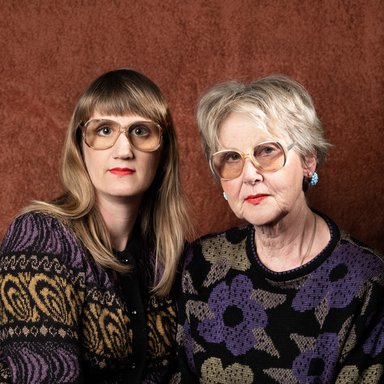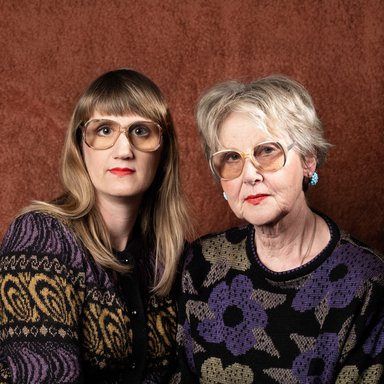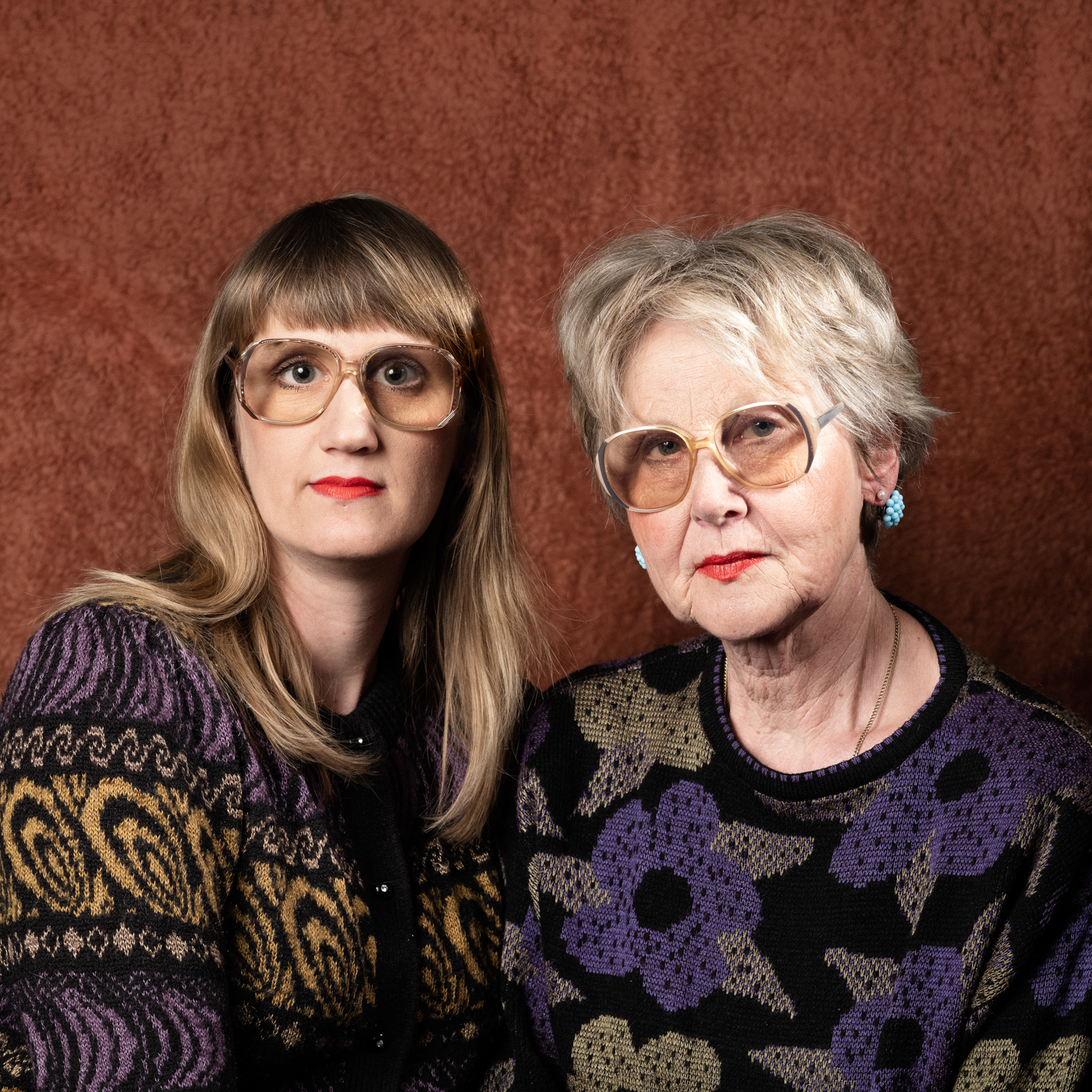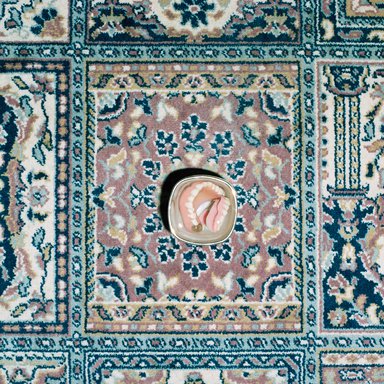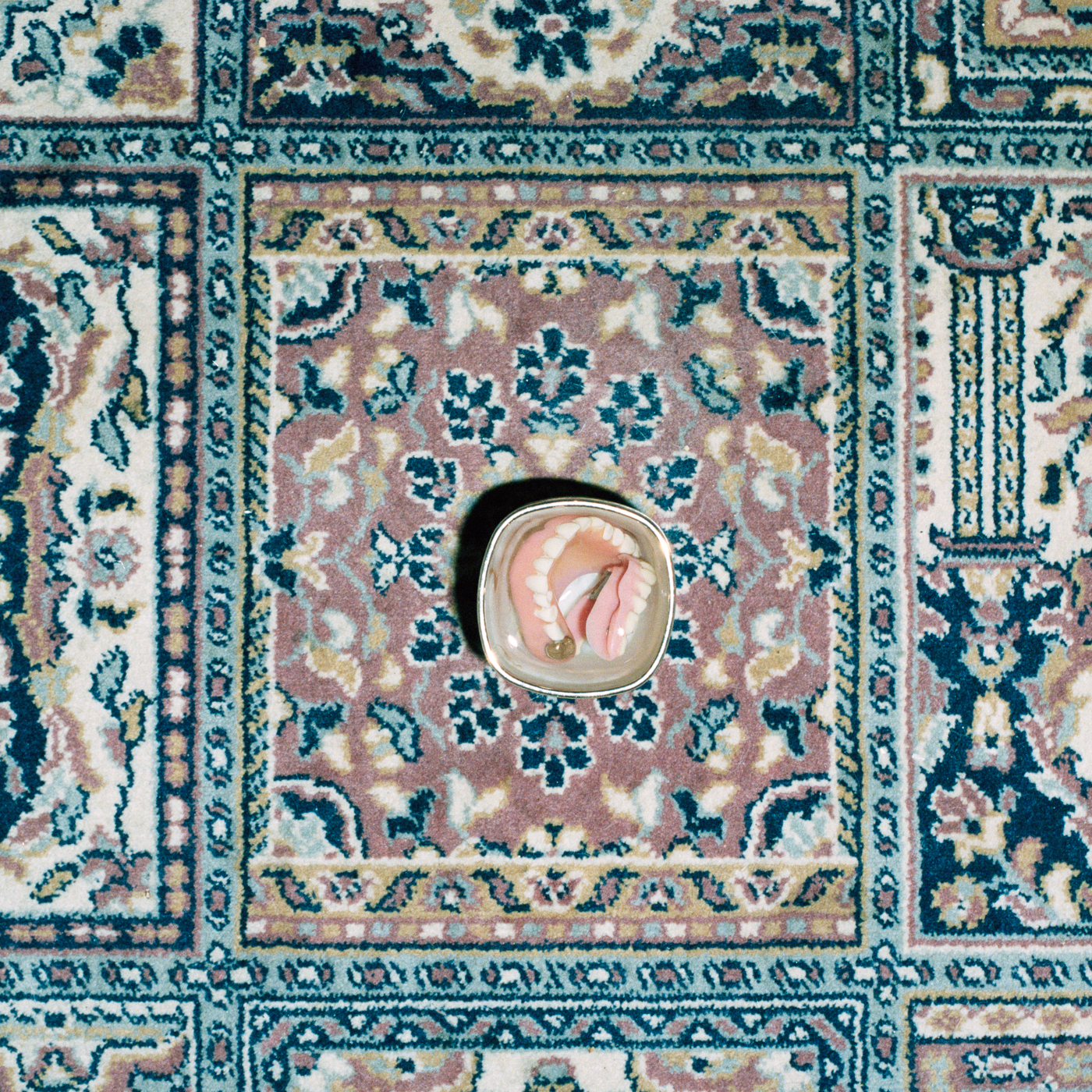Nina Röder | Champagner in the basement (2020)
Nina Röder | Champagner in the basement (2020)
When my grandparents died in 2017, my family had to clear out their house within a week and eventually sell it. Most of the grandparents' belongings were packed away randomly - only a few mementos were deliberately selected and stored in a basement room in my mother's house in Windsbach, Bavaria. At the beginning of 2020, the door of this room was opened again for the first time. With an ambivalence of astonishment and melancholy, all the objects, furnishings and above all the clothes of my grandmother were examined. It was in this same basement room that my mother and I staged portraits, self-portraits and still lifes for the camera during the first Corona Lockdown, using the objects we had picked up to create a stage for a theatre of the absurd. The series CHAMPAGNER IM KELLER joins my works about my family, in which I encounter loss and grief in a performative and humorous way. The series was created with the kind support of LEICA CAMERA DEUTSCHLAND.
Format:
Photo / Video
